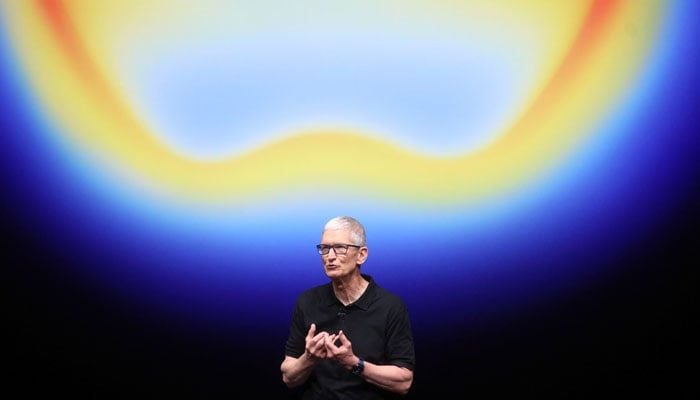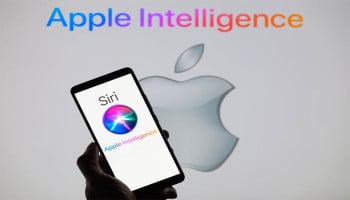
Apple CEO Tim Cook speaks as Apple holds an event at the Steve Jobs Theatre on its campus in Cupertino, California, US September 9, 2025. — Reuters
Apple recently revealed a number of updates to its product lineup in its 'Awe Dropping' event, including the iPhones, Apple Watch, and AirPods, leaving industry watchers with conflicting signals.
Significantly, the company's AI strategy was highlighted, albeit in a way that deviated from the usual fanfare associated with AI announcements.
Apple decided to highlight AI's role in enabling improvements to current products rather than promoting it as a game-changing feature.
Apple CEO Tim Cook claims that the company is making a "big leap" with the iPhone, but no particular AI features were highlighted.
This strategy contrasts with rivals like Google and Samsung, who have actively promoted their AI-powered inventions.
The occasion emphasised Apple's emphasis on incorporating AI into the fundamental features of its products, like enhanced photo capabilities and better gaming performance.
The company's neural engine and local large language models are being used with AI-driven features like live translation and heart rate monitoring on the Apple Watch to improve the user experience.
Apple's VP of Health, Dr Sumbul Desai, announced the company's ambitious plans to use AI to detect undiagnosed hypertension.
The FDA is expected to approve the study, which will involve over 100,000 participants, soon.
Reportedly, Apple's cautious approach to AI might be a calculated reaction to the competitive environment, where competitors like OpenAI, Anthropic, and Meta are making significant investments in AI research.
Notably, several leading researchers, including Jian Zhang, who recently joined Meta, have left Apple as part of the company's attempts to catch up in the AI arms race.
A new chapter in Apple's AI strategy may be heralded by the company's nuanced yet strategic approach as the field continues to change.
















